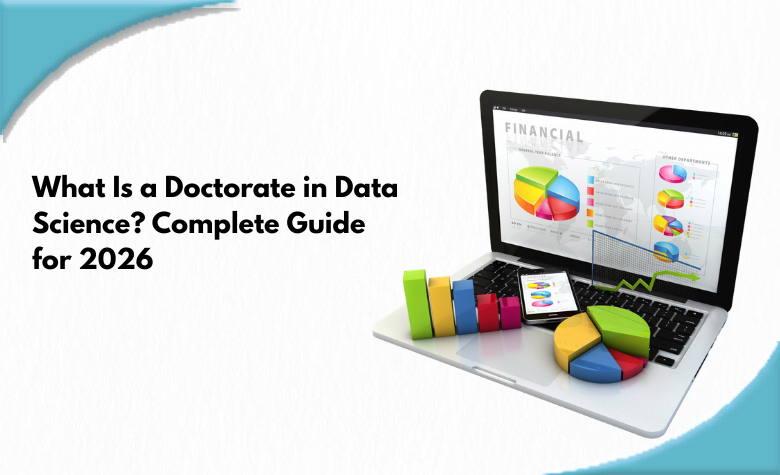What Is Data Science? A Beginner’s Guide to the Field of the Future
- May 7, 2025
- 4 min read
Updated: May 17, 2025
In today’s digital age, every business, whether big or small, generates data. But raw data alone has no meaning. This is where data science steps in. As the world becomes more data-driven, understanding what is data science has become essential for anyone looking to thrive in the modern workforce.
Learning Saint brings you this comprehensive beginner’s guide to explore what is data science, its benefits, core skills, and how you can get started in this promising field.
What Is Data Science in Simple Words?
Let’s break it down.
What is Data Science in simple words? It’s the process of collecting, analyzing, and interpreting large amounts of data to uncover useful insights that help people or organizations make informed decisions.
In other words, data science helps convert messy, unstructured information into clear, actionable knowledge. It combines techniques from statistics, programming, and domain knowledge to understand patterns in data and make predictions.
Why Data Science Matters Today
In a world flooded with information, the ability to turn data into decisions is a superpower. Companies across all industries—from finance to healthcare—use data science to:
Predict future trends
Understand customer behavior
Improve operational efficiency
Launch better products and services
Detect fraud or security threats
Whether you're shopping online, watching a movie on a streaming platform, or visiting a doctor, chances are you're benefiting from data science.
Key Components of Data Science
To fully understand what is data science, it helps to break it into core components:
Data Collection: Gathering raw data from various sources like websites, surveys, or sensors.
Data Cleaning: Removing errors or irrelevant information to make data usable.
Data Analysis: Using statistical methods to understand trends and relationships.
Data Visualization: Presenting results using charts or graphs so it's easier to understand.
Machine Learning: Training computer models to learn from data and make predictions.
Deployment: Implementing data models into real-world systems or applications.
What Do Data Scientists Do?
A data scientist is like a detective who solves real-world problems using data. Their job involves:
Understanding business problems
Gathering and cleaning data
Building algorithms and models
Interpreting the results
Communicating insights to decision-makers
Data scientists also collaborate with engineers, analysts, and product teams to bring data solutions into production.
Applications of Data Science in Real Life
Understanding what is data science becomes clearer when you see it in action. Here are a few real-world examples:
Healthcare: Predicting disease outbreaks or recommending personalized treatments.
Finance: Identifying risky investments or detecting fraud.
Retail: Personalizing product recommendations or optimizing supply chains.
Transportation: Planning better routes or predicting delays.
Sports: Analyzing player performance or improving team strategy.
These examples show that data science is not limited to tech companies—it's transforming every industry.
Top Skills You Need to Learn Data Science
If you want to build a career in data science, you’ll need a mix of technical and analytical skills:
Mathematics & Statistics – For analyzing and interpreting data accurately.
Programming (Python or R) – To write data processing and modeling code.
Data Visualization – Tools like Tableau, Power BI, or Matplotlib help tell stories with data.
Machine Learning – For building predictive models.
Database Management (SQL) – To query and handle structured data.
Communication Skills – To explain complex findings in simple terms.
At Learning Saint, our courses are designed to help you master all of these skills step by step.
Careers in Data Science
The demand for data professionals is skyrocketing. After learning what is data science, here are a few career paths you might consider:
Data Scientist
Data Analyst
Machine Learning Engineer
Business Intelligence Analyst
Data Engineer
AI Researcher
According to industry trends, data science roles often offer high salaries, job stability, and opportunities to work across different sectors.
How to Get Started in Data Science with Learning Saint
Ready to start your journey?
At Learning Saint, we offer flexible and beginner-friendly courses that help you understand what is data science, even if you have no prior background in tech or math. Our curriculum includes:
Real-world projects
One-on-one mentorship
Career guidance
Certification upon completion
By the end of our program, you'll not only know what is data science, but you'll also be equipped to apply it in your career.
Final Thoughts
In today's world, what is data science is no longer just a technical term—it’s a key to unlocking opportunity in almost every field. From solving complex problems to driving innovation, data science is the future of smart decision-making.
Whether you're a student, working professional, or business owner, learning what is data science in simple words can give you the competitive edge needed to succeed in this digital era.
Learning Saint is here to help you make that leap. Dive into the world of data, and transform your future today.






Comments